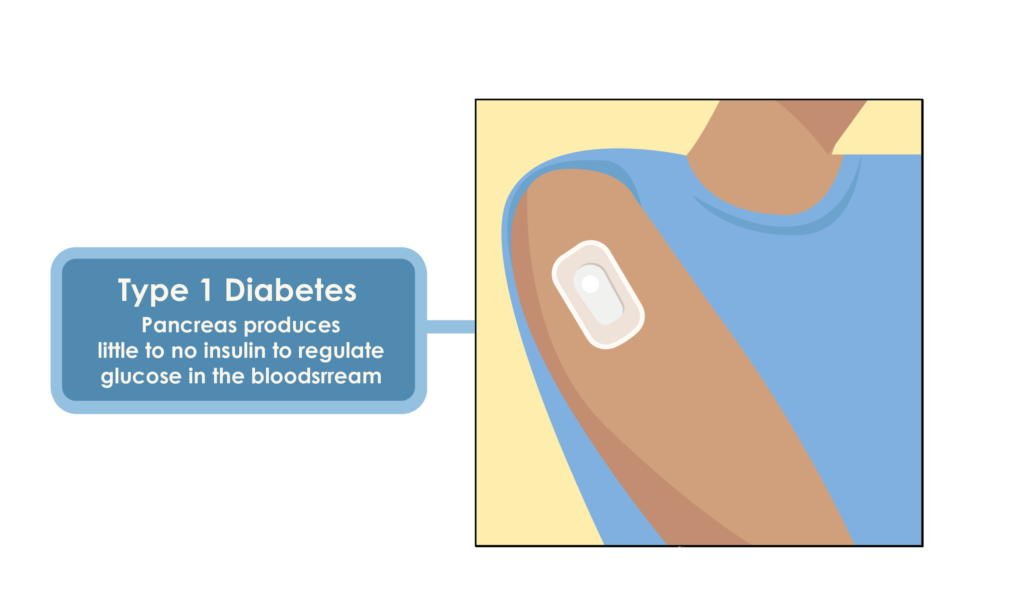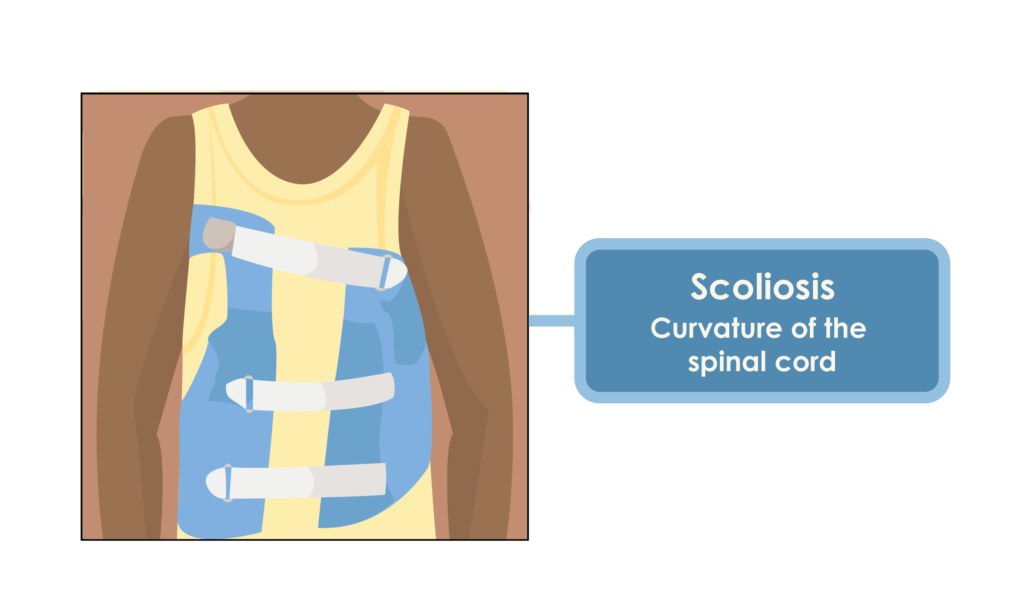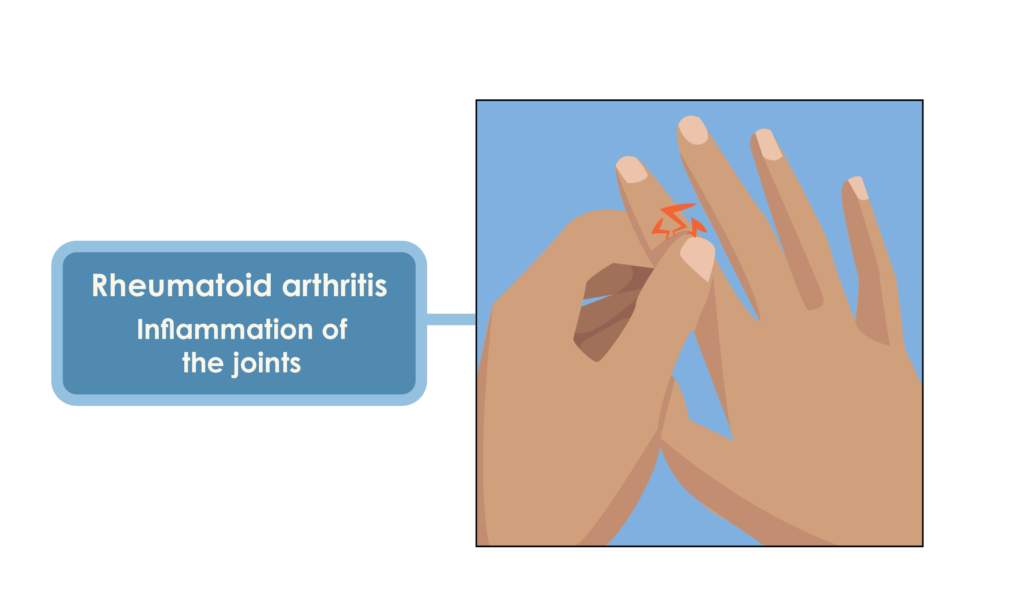Students manage chronic conditions in daily life
Elina Bishoyi | The Chronicle
Behind the scenes, some students have to navigate through the challenges of having chronic conditions.
Some students are diagnosed with chronic conditions that may affect their lives in a day-to-day setting. Having to deal with impacts on their mental and physical health, they have learned how to address the challenges of the side effects, especially in school.
Senior Mira Hill was diagnosed with scoliosis, a condition in which the spinal cord is curved, during her freshman year of high school. After visiting specialists in Pittsburgh for a specialized back brace, Hill said she struggled to adjust to school life.
“The [hardest part] of school was when people saw [the brace] or when I had to hide it with baggy sweaters,” Hill said. “It was more comfortable for me [to hide the brace]. I didn’t have to see [the brace] as much as I didn’t want other people to judge.”
Hill’s condition eventually worsened after her back brace no longer prevented her scoliosis from progressing. After traveling to Massachusetts for a specialized surgery, Hill said she underwent numerous treatments before she was able to return to school.
“It was like a long process during and after surgery,” Hill said. “[I missed] about a month of school. When [I came back] I was in a wheelchair, I had physical therapists, a weight limit for my backpack, but I got stronger.”
Hill said that her chronic condition not only interfered with her academic life but also her hobbies and passions. After playing for the Mason High School (MHS) Softball team during her freshman and sophomore year, Hill said her surgery caused her to leave the sport temporarily. Now she plays for a softball league in downtown Cincinnati, where she said she regularly updates her coaches about her condition.
“[Playing sports] was hard because I was on and off and going to different doctors,” Hill said. “After going through the surgery I had to take it day-by-day to get through all of the obstacles.”
Hill said that she found strength through finding a community of others with scoliosis. By having conversations with people from all over the country, Hill said she gained new perspectives on her own condition.
“I’ve been to conventions where I’ve met people from all around the world who have gone through the same thing,” Hill said. “I understood their struggles because I’ve had the same thing that they’ve had. I understood I didn’t have to hide it, but I also didn’t have to show it off.”
Senior Joe Margeson was diagnosed with Type 1 diabetes at 11 years old. Type 1 diabetes is a chronic condition in which the pancreas produces little to no insulin, a hormone that regulates glucose levels in the bloodstream, typically developed in early childhood. Monitors and glucose meters can be attached to the body to observe blood sugar levels.
“When I was first diagnosed it was hard for me to navigate how to effectively take care of myself in school,” Margeson said. “I was embarrassed to ask teachers if I could go to the nurse if my blood sugar was low or if my monitor beeped in class. As I’ve gotten older, I stopped caring about what others thought as long as I took care of my condition in that moment.”
Margeson was recently diagnosed with another chronic condition called Rheumatoid arthritis, which typically causes inflammation in the joints.
“My hands and knees had been in severe pain for years but due to my age, doctors never explored the possibility of me having arthritis,” Margeson said. “Finally I went to a specialist and she diagnosed me. It felt so validating to have someone finally tell me that the pain I was in was real and there was a reason why.”
Margeson said that managing two chronic conditions has led to difficulties in academic and social aspects, however, she has learned to adapt this into her routine.
“As I’ve gotten older, I have had to learn self-advocacy,” Margeson said. “If something is wrong with my diabetes I will take care of it even if I’m taking a test or giving a presentation. That’s not to say that it doesn’t have other challenges, every day is a struggle with checking my blood sugar, taking insulin, and being aware of how I feel.”
Freshman Hannah Kaufman was diagnosed with Crohn’s disease, inflammation in the digestive system when she was in fifth grade. Symptoms of this chronic illness typically include gastrointestinal pain, fatigue, and fevers. Now in remission, Kaufman said she has learned to live with her chronic illness as a high schooler.
“[Crohn’s disease] was kind of easy to deal with [when I was younger] because my parents told my teachers everything,” Kaufman said. “Now that I’m older, I can communicate if I need something or if I’m going to be out of school for a doctor’s appointment.”
As a member of the MHS Marching Band, Kaufman said she has experienced the effects of Crohn’s disease, such as stomach aches, during long practices, however has been able to work through and accommodate for the substantial time commitment.
“I will just continue to get medications and try to stay in remission for my whole life,” Kaufman said. “And for me, personally, it’s pretty manageable. There have been times when I’ve had a stomach ache during a rehearsal, however most of the time, I just power through it.”
Having lived with scoliosis from a young age, Hill said she has accepted her lifestyle and hopes to learn from it.
“I’ve learned that everything will be okay in the end,” Hill said. “[I am] not the only person dealing with this. I take it one step at a time, just like everything else. It’s what makes me, me.”




